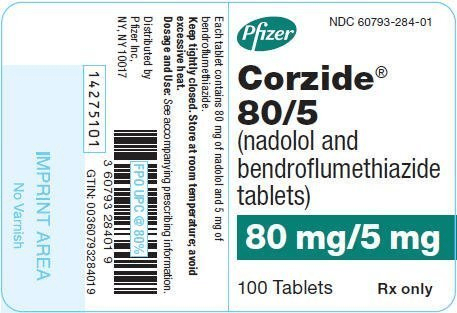Corzide


A medication called corzide is used to treat heart failure and high blood pressure. Additionally, it helps those with coronary artery disease avoid heart attacks. The angiotensin converting enzyme (ACE) inhibitor drug class includes corzide.
Corzide is used to treat high blood pressure. By decreasing blood pressure, it helps reduce the strain on the heart and reduces the risk of heart attacks and strokes.
Corzide is also used to prevent heart attacks in people with coronary artery disease. It works by decreasing the amount of a substance that narrows blood vessels, making it easier for blood to flow through them.
Corzide may cause side effects, including:
headache
dizziness or lightheadedness
cough
nausea or vomiting
diarrhea
tiredness
If you experience any of these side effects, contact your doctor. Corzide may also cause serious side effects, including:
low blood pressure (hypotension)
angioedema (swelling of the face, lips, tongue, throat or limbs)
If you experience any of these side effects, call your doctor immediately. Corzide can also cause allergic reactions. If you experience symptoms of an allergic reaction, such as hives, swelling of the face, lips or tongue, or difficulty breathing, call your doctor immediately.
Corzide should not be used in people with severe kidney impairment or in people who are allergic to ACE inhibitors. It should also be used with caution in people with diabetes, as it can cause low blood sugar levels.
Corzide is available in tablet form. The usual starting dose is 10 mg once daily. Your doctor may increase your dose depending on how well it works and your tolerability of the medication.
If you miss a dose of Corzide, take it as soon as possible. If it is almost time for your next dose, skip the missed dose and continue with your regular schedule. Do not take two doses at once.
Corzide can interact with other medications, herbs or supplements that can affect blood pressure or heart function. These include diuretics, beta blockers, NSAIDs, potassium supplements and salt substitutes that contain potassium. Taking Corzide with these substances can increase the risk of low blood pressure or other problems.
Corzide can also interact with lithium, which is used to treat bipolar disorder. Taking these two medications together can increase the level of lithium in your blood, which can lead to toxicity.
It’s important to tell your doctor about all medications, herbs and supplements you are taking, as well as any medical conditions you have. This will help your doctor determine if Corzide is safe for you to take.
Corzide works by decreasing the amount of a substance that narrows blood vessels, making it easier for blood to flow through them. It also works by decreasing the amount of a substance that makes the heart work harder. This helps to reduce strain on the heart and reduces the risk of heart attacks and strokes.
Corzide is rapidly absorbed from the gastrointestinal tract and has a bioavailability of about 50%. It is metabolized in the liver by CYP3A4 and has a half-life of about 11 hours. Corzide is excreted primarily in the urine as metabolites.
There are many alternatives to Corzide, including other ACE inhibitors, beta blockers, calcium channel blockers and diuretics. Some of these drugs may be better suited for certain medical conditions. Talk to your doctor about all the options available to you.
Symptoms of an overdose of Corzide may include:








Plus get the inside scoop on our latest content and updates in our monthly newsletter.